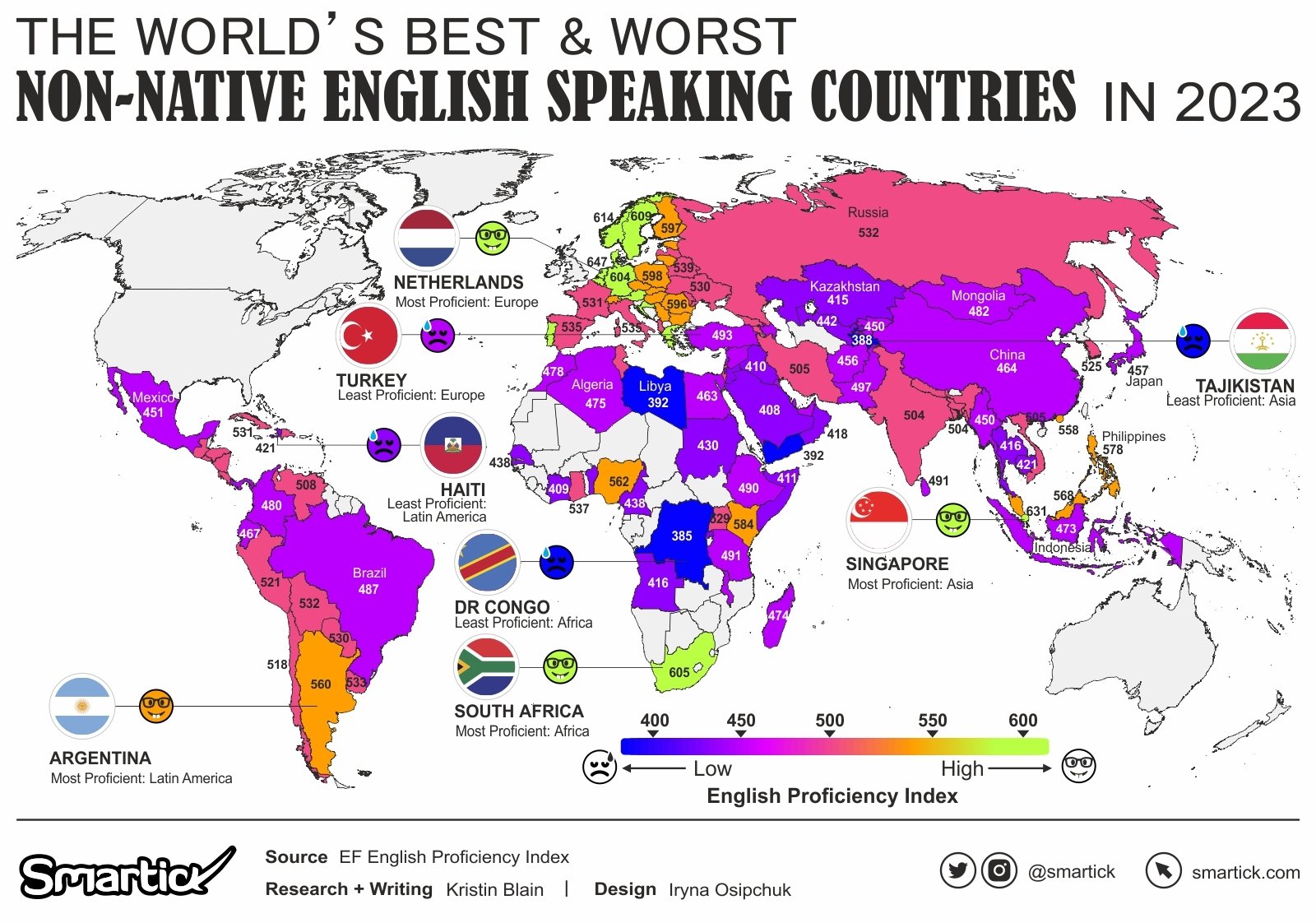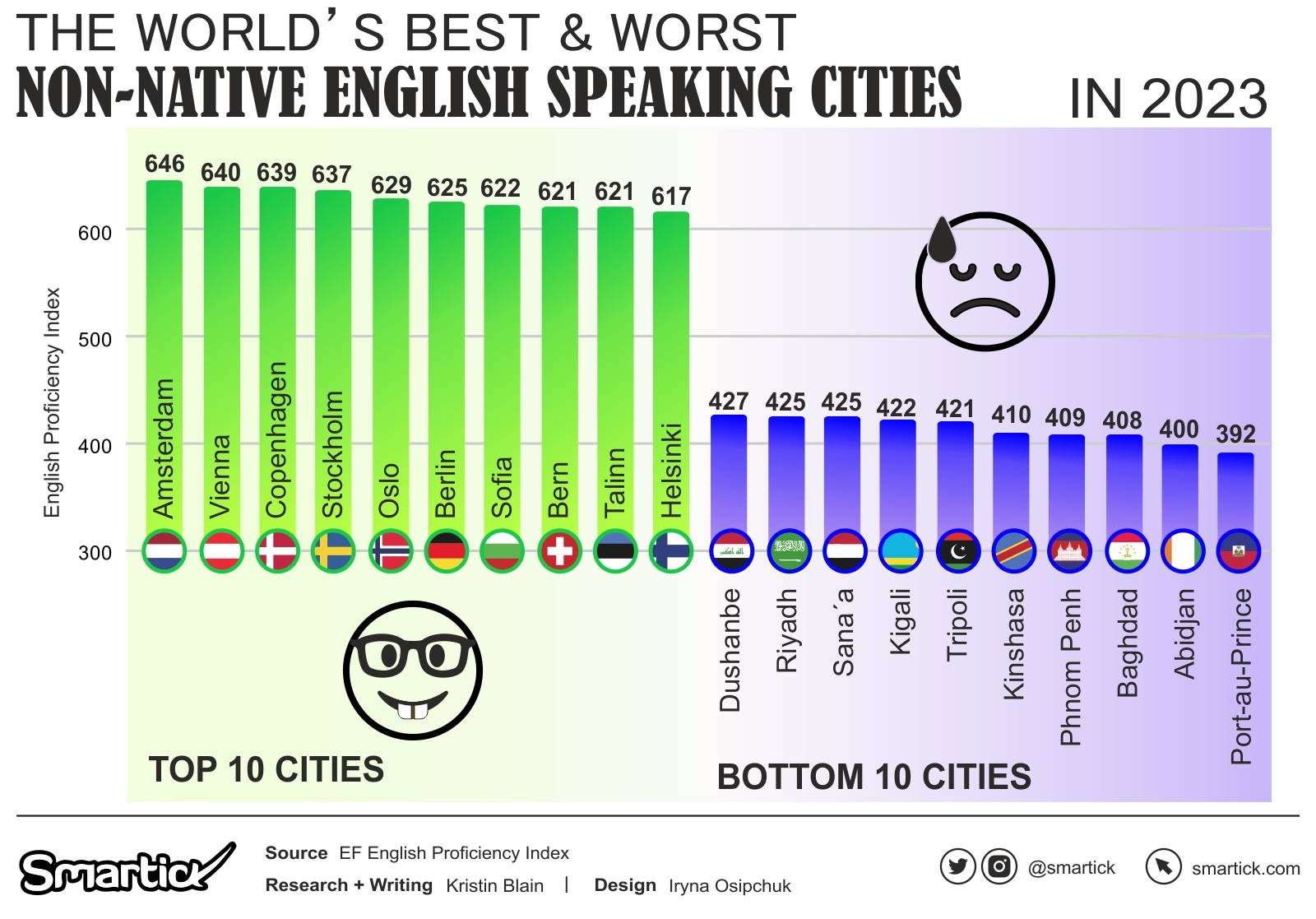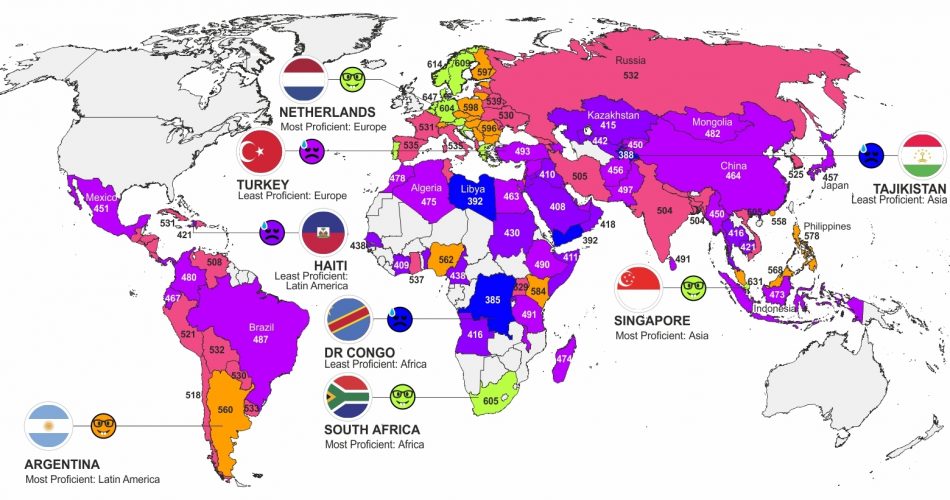
Welcome to the 2023 edition of the EF English Proficiency Index (EF EPI), the world’s most extensive ranking of countries and regions by English language skills. This comprehensive report is based on the test results of over 2.2 million adults across 113 countries and regions, providing a nuanced understanding of global English proficiency.

A decade of surging demand and unprecedented investment in English language education has yielded a stable worldwide average English proficiency level among adults. However, beneath this superficial stability lies regional and national variation, as well as noteworthy shifts in specific age and gender groups. This calls for a closer examination of the data to understand the consequences of language acquisition policies and identify opportunities for progress.
Regional Insights
Europe: Flourishing Fluency Across the Continent
The top performers in English proficiency include the Netherlands and Austria, with Amsterdam, Vienna, and Copenhagen leading in city rankings. However, Europe, despite dominating the top of the index, experiences a slight slump, revealing gender gaps in countries like France and Italy. The proficiency levels in certain European economies, such as Spain and Italy, are yet to reach the same levels as their neighbors.
Asia: Challenges Amidst Economic Powerhouses
East Asia, especially Japan and China, has witnessed a decline in adult English proficiency over the past four years. In contrast, North Africa is showing steady improvement, while South and Southeast Asia grapple with a slight drop in their average English proficiency level, influenced by changes in India and Thailand.
Latin America: A Region in Flux
Latin America showcases a region in flux, marked by both improvement and decline. Central America has seen the most significant improvement globally, while Mexico and Argentina contribute to the drop in proficiency among 18–20-year-olds since 2015.
Africa: Stability and Gender Parity
Across Africa, English proficiency levels are largely stable, with all age groups testing at similar levels in most countries. The gap between men and women in Africa is the narrowest of any region, and, with few exceptions, gender gaps are narrow at the national level as well.
City Rankings
City rankings provide a detailed insight into the English proficiency of urban centers. Amsterdam, Vienna, and Copenhagen lead the list, showcasing the linguistic prowess of European cities. Meanwhile, Port-au-Prince, Abidjan, and Baghdad find themselves at the bottom, emphasizing the need for targeted language education in these regions.

The EF EPI 2023 underscores the importance of adapting language policies to address regional nuances and emerging trends. Despite the stability in the global average, the report reveals disparities that necessitate targeted interventions. As we navigate the linguistic landscape of the modern world, the EF EPI remains a crucial guide for educators, policymakers, and individuals striving to enhance English proficiency. Understanding the regional dynamics is pivotal for tailoring effective language education programs and fostering cross-cultural communication, ensuring that the advantages of English proficiency are accessible to all.

